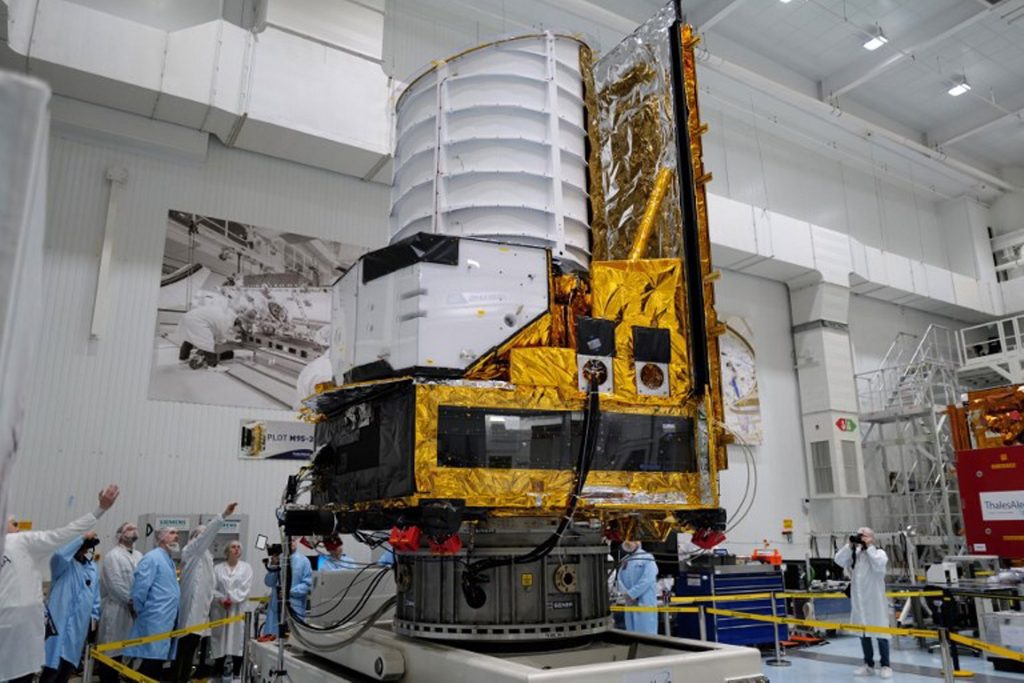The European space telescope Euclid will be launched from Cape Canaveral in the United States at 5.11pm on Saturday 1 July.
This should enable billions of galaxies over approximately 12 billion light years to be mapped more accurately.
A team of Belgian scientists and engineers from UCLouvain, Université libre de Bruxelles (ULB) and the universities of Liège, Namur and Ghent, as well as the Liège Space Centre (CSL) are taking part in the 10-year project, which brings together more than 3,500 people from 21 countries.
The Euclid mission should make it possible to identify and understand dark energy (68%) and dark matter (27%), which together make up 95% of the invisible part of the universe.
“We know it’s there, but we don’t know what it is,” said André Fuzfa, cosmologist at the University of Namur, who is behind Belgium’s participation in this project led by ESA, the European Space Agency.
“We will be looking to understand the effects of these elements on the distribution of galaxies over billions of years,” he explained.
Euclid will eventually offer 3D mapping of billions of galaxies, some billions of years old, others more recent. It will thus be possible for scientists to go back in time to better understand the effects of this invisible matter in the universe.
The satellite, tested in Liège, will record 850 gigabytes of data per day for six years. It will scan the sky more than 1.5 million kilometres from Earth.
Euclid is scheduled to enter orbit two to three months after its launch on a Space X Falcon 9 launcher. “You’re always a bit stressed when you launch a telescope,” Sébastien Clesse, a cosmologist at ULB, admitted.
The data gathered by Euclid will be available in waves from November 2023. It will be public and will serve “for at least one generation of scientists,” said André Fuzfa.

